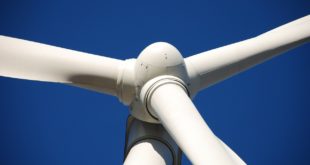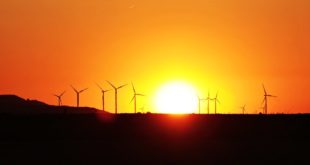The wind blows. In some places it blows reliably and steady. In others the wind comes and goes with varying speeds. The growth of the wind energy industry has meant there is a greater need for pin pointing where and when the wind will blow so that operators will know how to integrate that produced wind energy into the electrical grid. This article loos at the needs of the grid operators in terms of wind forecasting.
Improving wind energy forecasts is critical for integrating this variable power source into the U.S. power grid, especially when the country has seen a big jump in wind energy generation, according to a report released on Wednesday on whether various regional grids in the country will be ready to meet peak energy demand this summer.
Technology advancements to cut production costs, as well as government incentives and mandates for adding more clean power, have boosted wind energy output from 6 billion kilowatt hours in 2000 to about 120 billion kilowatt hours in 2011, according to the report from the North American Electric Reliability Corporation.
Wind energy generation will meet about 2% of the peak demand during this summer, from June 1 through Sept. 30, the report said. Power plants that run on natural gas, coal and nuclear will collectively meet 77% of the summer peak demand. Hydro power plants will provide 13% while solar energy will supply 0.48%. The electric reliability corporation, which is overseen by the Federal Energy Regulatory Commission, is responsible for ensuring the nation’s grid is in good shape.
 Alternative Energy HQ solar power for homes, wind energy, and bio fuel issues
Alternative Energy HQ solar power for homes, wind energy, and bio fuel issues






